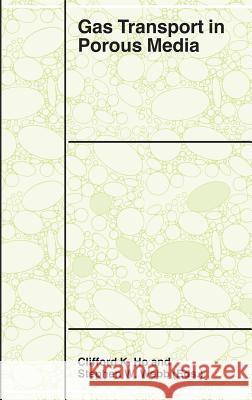Gas Transport in Porous Media » książka
Gas Transport in Porous Media
ISBN-13: 9781402039614 / Angielski / Twarda / 2006 / 456 str.
CLIFFORD K. HOAND STEPHEN W. WEBB Sandia National Laboratories, P. O. Box 5800, Albuquerque, NM 87185, USA Gas and vapor transport in porous media occur in a number of important applications includingdryingofindustrialandfoodproducts, oilandgasexploration, environm- tal remediation of contaminated sites, and carbon sequestration. Understanding the fundamental mechanisms and processes of gas and vapor transport in porous media allows models to be used to evaluate and optimize the performance and design of these systems. In this book, gas and vapor are distinguished by their available states at stan- ? dard temperature and pressure (20 C, 101 kPa). If the gas-phase constituent can also exist as a liquid phase at standard temperature and pressure (e. g., water, ethanol, toluene, trichlorothylene), it is considered a vapor. If the gas-phase constituent is non-condensable at standard temperature and pressure (e. g., oxygen, carbon di- ide, helium, hydrogen, propane), it is considered a gas. The distinction is important because different processes affect the transport and behavior of gases and vapors in porous media. For example, mechanisms specific to vapors include vapor-pressure lowering and enhanced vapor diffusion, which are caused by the presence of a g- phase constituent interacting with its liquid phase in an unsaturated porous media. In addition, the heat-pipe exploits isothermal latent heat exchange during evaporation and condensation to effectively transfer heat in designed and natural systems."











